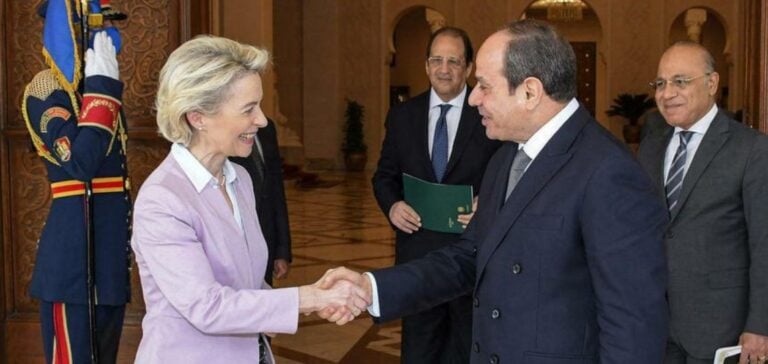This Sunday, the European Union and Egypt will take a decisive step by sealing a 7.4 billion euro financial agreement. Conceived as a mix of loans, investments and aid, the agreement is designed to help Egypt through its worst economic crisis. With 5 billion allocated to loans, including 1 billion available before the end of 2024, and 1.8 billion earmarked for strategic investments, this agreement represents substantial support for Egypt’s economic recovery.
Strategic fund distribution
Beyond the figures, the distribution of funds demonstrates a targeted commitment to key sectors. The 400 million euros earmarked for bilateral projects and the 200 million focused on migration issues reflect a willingness to respond to immediate challenges while investing in Egypt’s long-term stability.
Focus on energy and regional stability
At the heart of the agreement, energy cooperation is the mainstay of this new EU-Egypt dynamic, with a particular focus on LNG. This strategic choice aims to reduce Europe’s dependence on Russian gas, in a tense geopolitical context. At the same time, the agreement underlines the importance of security, counter-terrorism and border protection, highlighting Egypt’s geostrategic role in the region.
A renewed migration model
Based on the agreement with Tunisia, this collaboration also aims to establish effective control of migratory movements. The EU is counting on Egypt to curb departures and facilitate the return of irregular migrants, underlining the importance of migration management in bilateral relations.
The agreement signed in Cairo is not limited to financial support; it represents a strategic partnership aimed at jointly addressing economic, security and migration challenges. This initiative comes against a backdrop of enhanced cooperation, with Egypt and the EU positioning themselves as key partners in the quest for regional stability and sustainable development.






















